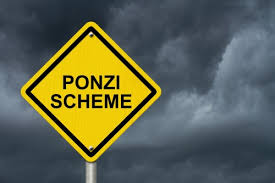In the absence of Central Act, state government is unable to auction ponzi firms’ immovable properties outside Odisha
Bhubaneswar: The Odisha government had brought the Odisha Protection of Interest of Depositors Act, 2011, with a view to refund the duped investors of the money they had invested in various ponzi schemes. It had also set up a corpus fund of Rs 300 crore in 2013 to refund the small depositors. Unfotunately, the process still remains in a limbo.
Prior to the 2014 elections, the state government had formed the corpus fund and also set up a commission of inquiry. The MM Das Commission, probing the multi-crore chit fund scam had identified 1,16,504 small investors (who invested up to Rs 10,000) and recommended refunding them on a priority basis.
While the government is yet to complete the process of refunding money to small investors, none who had invested over Rs 10,000 has received his/her money back.
According to sources, the state government has started the process of refunding the small investors identified by the commission and some districts have also completed the process.
The commission, meanwhile, submitted several reports on refunding the duped investors. Before making the refunds, the government is undertaking field verification and checking all details – like money receipts and bank accounts of the concern person. Therefore, it is taking time, an official of the Finance Department told Orissa POST requesting anonymity.
The small investors are being refunded from the Rs 300-crore corpus fund, but the state government is reportedly facing a hard time in making significant progress in refunding other duped investors owing to the lack of a Central law on the subject.
So far, the state government has initiated the process to refund the duped investors of Rose Valley, while process for others is yet to start.
As per the Odisha Protection of Interest of Depositors Act, 2011, four designated courts in Cuttack, Balasore, Sambalpur, and Berhampur headed by additional district and sessions judges are expected pass the verdict on attachment of the ponzi firms’ properties. The courts will also issue orders on the amount that would be refunded to the duped depositors.
There are various issues creating hurdles in the refunding process, the official said, adding, “Various agencies including our police, CBI and ED are probing the chit fund cases and they have attacked properties of various firms at various places.”
“Some properties have been attached by multiple agencies, while related cases are also pending in the Supreme Court. In such a situation, how can we proceed,” he asked.
Besides, the absence of a Central Act is another hindrance in the path of the state government’s plans to refund investors. “Due to the absence of any Central law, the state is unable to get money from chit fund firms’ properties attached in other states like Tamil Nadu, Maharashtra and West Bengal,” the official stated.
The Modi government in 2016 drafted the Banning of Unregulated Deposit Schemes and Protection of Depositors’ Interests Bill, 2016. The Bill was introduced in the Lok Sabha in July this year and is still pending in the Lower House.
The Bill provides for a mechanism to ban unregulated deposit schemes and protect the interests of depositors. It also seeks to amend three laws, including the Reserve Bank of India Act, 1934, and the Securities and Exchange Board of India Act, 1992.
The Bill arms the authorities to search and seize any property believed to be connected with an offence under the Bill, constitution of designated courts and attachment of the illegal firms’ assets and sell them.
Notably, the state government has cracked down on 342 chit fund companies including Seashore, Aartha Tatwa (AT), Rose Valley, and Micro for defrauding investors. In May 2014, the Supreme Court ordered a CBI probe into the Saradha group and 44 other chit fund firms for allegedly taking investors for a ride.
Biswa Bhusan Mohapatra, OP
